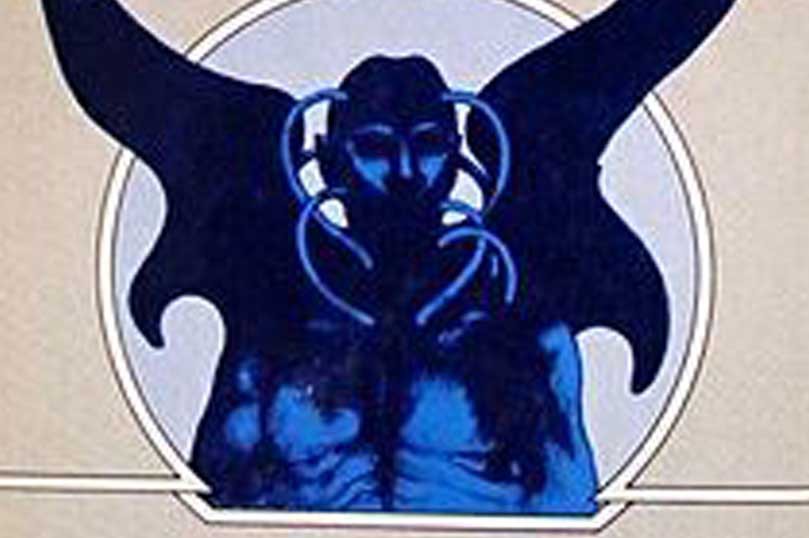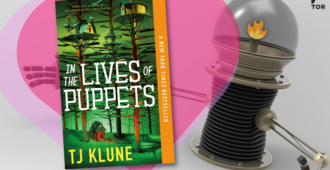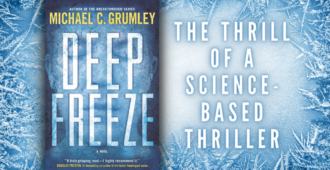 Hands down, Man Plus remains the most insightful portrait of outfitting a human for the harsh plains of Mars. Savor this:
Hands down, Man Plus remains the most insightful portrait of outfitting a human for the harsh plains of Mars. Savor this:
Suppose one takes a standard human frame and alters some of the optional equipment. There’s nothing to breathe on Mars. So take the lungs out of the human frame, replace them with micro-miniaturized oxygen regeneration cat-cracking systems. One needs power for that, but power flows down from the distant sun.
The blood in the human frame would boil; all right, eliminate the blood, at least from the extremities and the surface areas—build arms and legs that are served by motors instead of muscles—and reserve the blood supply only for the warm, protected brain.
A normal human body needs food, but if the major musculature is replaced by machines, the food requirement drops. It is only the brain that must be fed every minute of every day….
Water? It is no longer necessary, except for engineering losses—like adding hydraulic fluid to a car’s braking system every few thousand miles. Once the body has become a closed system, no water needs to be flushed through it in the cycle of drink, circulate, excrete, or perspire.
Radiation? A two-edged problem. At unpredictable times there are solar flares; and then even on Mars there is too much of it for health; the body must therefore be clothed with an artificial skin. The rest of the time there is only the normal visible and ultraviolet light from the sun. It is not enough to maintain heat, and not quite enough even for good vision; so more surface must be provided to gather energy—hence the great bat-eared receptors on the cyborg—and, to make vision as good as it can be made, the eyes are replaced with mechanical structures.
This is a thorough transformation, no mere augmentation. Yet in Pohl’s rigorous prose it seems possible. Here’s the hero, an extensively modified cyborg with augmented eyesight. A nurse brings a bouquet of roses to his room soon after his new eyes are hooked up:
”Roger sat up and began again his investigation of the world around him. He studied the roses appraisingly. The great faceted eyes took in nearly an extra octave of radiation, which meant half a dozen colors Roger had never seen before from IR to UV; but he had no names for them, and the rainbow spectrum he had known all his life had extended itself to cover them all. But it was not quite true even to say that it seemed to be red; it was only a different quality of light that had associations of warmth and well-being.”
This is the best novel to treat a big question: Will we venture out into the dangers of the galaxy as allies and competitors of our own machines?
Gregory Benford can be found online at gregorybenford.com.
…………………………
All the Lives He Led (978-0-7653-2176-3 / $25.99) by Frederik Pohl will be available from Tor Books on April 12, 2011.
…………………………
Related Links:
- What’s your Favorite Frederik Pohl novel?
- Jody Lynn Nye: Starburst
- Mike Resnick: The Way the Future Was
- Harry Harrison: The Space Merchants
- Vernor Vinge: Slave Ship
- Joe Haldeman: Wolfbane and The Space Merchants
- Neil Gaiman: The Age of the Pussyfoot
- Cory Doctorow: The Space Merchants
- David Brin: Wolfbane
- James E. Gunn: Gateway and The Space Merchants
- Larry Niven: The Age of the Pussyfoot
- Ben Bova: The Space Merchants
- Phyllis Eisenstein: The Space Merchants






